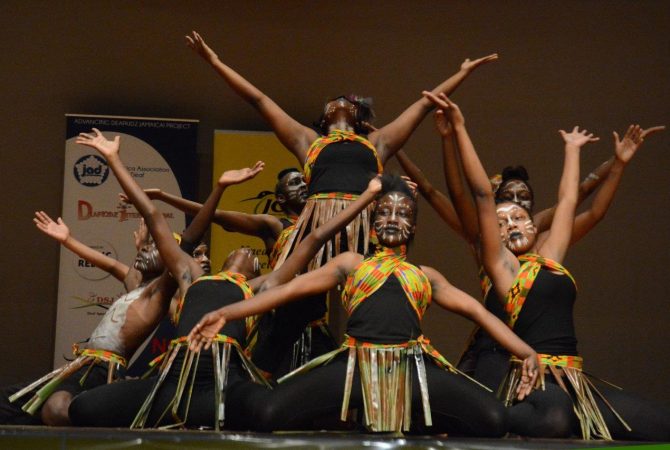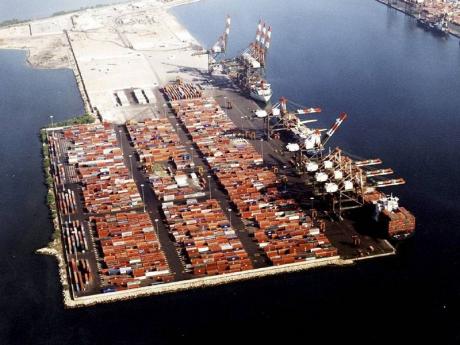By Eron Henry

Jamaicans love to beat upon Jamaica. We berate ourselves largely because we compare ourselves not so much with our peers (other Caribbean nations for instance) but with more advanced economies, especially in North America and Western Europe, and get annoyed and irate when we fall short.
COVID-19 has brought into clear focus how well countries handle the pandemic. Jamaica has been among those commended for its response. It’s a good time therefore to reflect on some of the things Jamaica has done right through the years. That, though we complain much about us, there are some things we get right and do well. If only relatively or comparatively.
The following are just samples. Other persons will no doubt name more and wonder why these were excluded. It is also expected that some persons will quickly share the shortcomings of the institutions, organizations and programs I’ll mention. That is to be expected. We’re not talking perfection here. We’re, instead, focusing on what is mostly done right and overall achievements that outweigh the negatives. Or, despite failures, have done a whole lot of good.
So, let’s fire away.
Democracy
Jamaica has had a sterling and strong democratic tradition. It came under stress in the 1970s and 1980s when the island teetered between Cold War rivals and was, like other small and weaker countries, caught in the middle.
Its democratic traditions came out unscathed, even strengthened. One reason is its electoral system. Despite fault lines, Jamaica’s electoral system, continuously reformed until it attained its most recent iteration in 2006, is relatively sophisticated compared to its peers and even of more advanced economies. The Electoral Commission of Jamaica and the Electoral Office of Jamaica are especially to be commended for this reputation. The voting registration system is solid. The conducting of elections is a huge improvement on the 1970s and early 1980s. The opportunity for corruption is greatly minimized.
Press freedom
As far as press freedom goes, Jamaica is one of the freest countries there is. As far as proliferation of media and access to media, it is difficult to get better, because Jamaica is way up there with the best. Journalists and media professionals are protective of these press freedoms and are not shy at protesting the slightest hint of restrictions. Jamaicans can mostly express their views freely without fear of official reprisal.
Belatedly in November 2013, the island became the first in the Caribbean to repeal British colonial era criminal defamation laws that made it easy for public figures to sue for slander or libel. Media can now air and publish more freely without fear of being hit with major lawsuits.
Concerns remain. While much improvement has been made with the island’s movement away from British colonial secrecy laws, it is not as easy to get access to certain official documents and information. Freedom of information needs further attention.
Women’s rights
Jamaica made three key decisions in the 1970s, earlier than many of its peers, to improve the status of women and girls: free education to all Jamaicans, from primary school through to college and university that opened college and university education to swaths of the population previously excluded; the Employment (Equal Pay For Men And Women) Act, which stipulates that all persons, regardless of gender, should get equal pay for equal work; and the Maternity Leave Act that mandates women be paid, for at least eight weeks, the wage or salary they earned the normal work week prior to going off on maternity leave. She can take an additional four weeks no-pay leave without risk of losing her job or benefits. These laws have been consistently observed and enforced.
Education
Jamaica has a high standard of education. Anyone who has traveled (I’ve been to 30 countries) realizes this. Its primary school system is solid. Its traditional high schools are first rate. Its colleges mostly outstanding. Its universities of a high standard.
There are huge gaps. The country has done poorly in implementing a systemwide early childhood education, leaving it up to poor quality basic schools in some communities to fill the gap. Standard of primary level education varies according to location. Most nontraditional high schools, especially those upgraded from “New Secondary,” are yet to attain the required standard. There are not enough college and university spaces, though that improved in recent years. Inner city schools and those in some deep rural communities need attention. Social realities where some schools operate need to be addressed to help improve standards and performance.
Training
One of the best institutions ever created in Jamaica is HEART Trust/NTA. It has evolved from very humble beginnings and an uncertain start to become a beacon. Jamaica learned a lot from India, which has one of the most sophisticated training systems in the world. As it is now, if you do not have a university degree or college diploma, a HEART certificate is indispensable to get a meaningful job. It set its bar for entry comparatively low to enable as many persons as possible to gain training. Yet the training, for the most part, is first rate. It allowed other institutions and organizations to admit and train HEART students so long as they maintain and apply the standards.
Primary and public healthcare
Jamaica’s secondary healthcare system is often deplorable, but it mostly gets primary healthcare right. Immunization, prenatal and postnatal care, examples of primary care, are first rate. Hospitalization, a common form of secondary healthcare, is very spotty. Decent in some areas, atrocious in others. Hard to name an outstanding hospital on the island. They fail mainly in trauma, emergency response and critical care. But Jamaica’s community clinics are top rate and have done outstanding service. Specialist centers and units that deal with sickle cell anemia and orthopedics, among others, do good work, but the quality care is not widely available.
Public health is also good. The country’s response to COVID-19 is an example of good public healthcare response. So was its response to dengue, H1N1, Zika and other threats and outbreaks.
Disaster preparedness
In the wake of Hurricane Gilbert in September 1988, when its lack of preparedness was exposed, Jamaica got its disaster response in order. The response to Gilbert was chaotic (I was in Clarendon at the time and the level of corruption was blinding). Afterwards, the country formed the Office of Disaster Preparedness and Emergency Management with offices and branches in every parish, as well as the National Emergency Operations Centre. Shelters were identified, public education on disaster management improved and there is better coordination of assistance to those affected by disasters.
Housing
Jamaica has a housing crisis and it is unclear how soon this will be resolved. The price for land and housing, especially in cities and large towns, are way too high for a country of Jamaica’s economic status. Many without housing access resort to squatting, which breeds other social problems. But the National Housing Trust (NHT) is an outstanding institution that enabled tens of thousands of Jamaicans to own a home for the first time. Almost anyone who has an income can receive a mortgage to buy land or build or buy a house. It employs graduated interest rates and easy payment terms to make this possible.
I rate the NHT next to HEART Trust/NTA as perhaps the best institution the country created that has had such broad impact on Jamaicans. However, the institution has become a cash cow with governments raiding its substantial funds for projects and programs other than housing. This is of concern and it should stop.
Ports and logistics
As an island, shipping is important. Even though Jamaica is not anywhere close to Singapore, one of the best in shipping and logistics, Jamaica still has a great port and shipping infrastructure that rivals many other countries. The Shipping Association of Jamaica is to be commended. But especially the Port Authority of Jamaica (PA). The PA turned Jamaica into a regional logistics powerhouse, especially for transshipment and tourism cruise shipping.

Culture
Few countries of Jamaica’s size are as sophisticated in the development and promotion of its culture. It is not accident that Jamaica’s reputation as a cultural icon is global. While we’re not at the same level as Ancient Greece, which has had a huge impact on world history and culture, or the United States, which dominates global culture, we punch way above our weight. Enslaved Africans were left with little but their cultural memories and retentions, which they put to good use. Descendants of European colonizers and workers, especially those from England, Scotland and Ireland, did much to create a cultural legacy. Exiled Jews and descendants of indentured Chinese and Indians brought rich cultural flavors.
The Jamaica Cultural Development Commission does much to promote the island’s culture in schools and communities. Fashion and food. Music and dance. Theater and drama. Art and sculpture. Much needs to be done to promote the writing arts — poetry and especially prose. But culturally, the country gets it mostly right. The Social Development Commission (SDC) plays its part and has done much to promote community cultural and other engagements.
Sport
As far as sporting bodies go, the Inter-Secondary School Sports Association (ISSA), which organizes sports for high schools, must be among the best of its kind anywhere in the world. It made Jamaica a global powerhouse in track and field and paved the ground for its regional dominance in football and outstanding performances in other sports such as basketball. While “minor sports” need more attention and resources, ISSA has done a remarkable job in promoting sports in the island’s schools.
Associations have played significant roles in the development of sports. The Jamaica Netball Association is at the front of the line, with the island ranked never lower than fourth globally in the sport. Commendations are due track and field, football, cricket, basketball, swimming, taekwondo and other associations. The SDC plays an integral part in the development of sports at the community level.
So yes, many things in Jamaica need fixing. Violent crime is the most urgent. One suspects if the country were to get this right it would take off in other ways as well. We are not yet where we should be economically. Economic peers at the time of independence in 1962 — South Korea, Singapore, Taiwan, etc. — have long since outstripped us and are way ahead economically.
But, in this time of COVID-19, let us celebrate what we got right.
Eron Henry is an ordained minister, public speaker, writer, editor and traveler. He is principal of the communications consultancy, Eron Henry & Associates. His novel, Reverend Mother, is available on Amazon. He can be reached at eronhenry2@gmail.com
Just discovered this blog. Interesting reading…